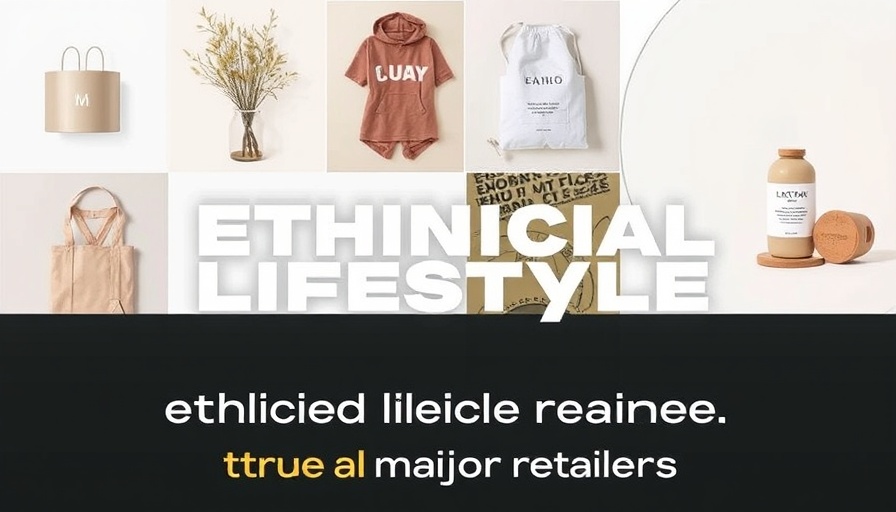
Exploring Ethical Shopping: A Growing Movement
As consumers in 2025 become increasingly aware of the impact their purchasing decisions have on society, a rising interest in ethical shopping alternatives is emerging. The sharp criticism directed at retail giants like Amazon and Target has sparked a transformative dialogue on what it means to engage in responsible consumerism. Shoppers are no longer just searching for convenience; they want to align their purchases with their values.
Changing the Narrative Around Big Box Stores
Amazon, once synonymous with convenience, has garnered negative attention for its workplace practices and lack of support for diversity, equity, and inclusion (DEI). Meanwhile, Target, the so-called beacon of community involvement, has faced backlash for rolling back its DEI initiatives, leaving many questioning their loyalty to these establishments. The challenge becomes clear: how does one shop ethically in a rapidly evolving marketplace?
Supporting Local and BIPOC Brands
To navigate this dilemma, consider shifting your shopping habits towards local businesses and BIPOC-owned brands. Directly supporting these enterprises not only uplifts minority communities but also fosters a more equitable economy. For instance, brands like YGN, founded by entrepreneur Monique Little, exemplify how supporting business owners can make a tangible difference. As she notes, purchasing directly from minority-owned businesses allows consumers to understand their impact more clearly.
The Importance of Intentional Spending
As you explore alternatives to major retailers, it's crucial to understand your spending's potential consequences. Each purchase contributes to shaping a market that values social responsibility. While there are concerns about whether boycotting larger corporations actually hurts the employees, there's also the perspective of empowering small brands that align more closely with personal ethics. By choosing to buy local or from minority-owned companies, you make a potent statement about your values.
Practical Tips for Finding Alternatives
Finding alternatives to major retailers isn’t just about avoiding shopping at Amazon or Target—it’s about discovering satisfying substitutes. Here are some practical tips:
- Utilize local directories to discover small businesses in your area that cater to your needs.
- Explore online platforms that specifically showcase BIPOC-owned brands, allowing for both convenience and ethical compliance.
- Join community groups focused on sharing resources about alternative shopping options, fostering both connection and awareness.
Conclusion: Redefining Consumerism Together
In 2025, the conversation around ethical shopping has evolved with consumers at the forefront of demanding accountability. Finding alternatives to house-hold names like Amazon and Target is a personal journey that can lead to greater community connections and support for local economies. Stronger partnerships can emerge as consumers express their priorities through their spending habits.
Take action today by seeking out brands that resonate with your values and support them—because the future of shopping can indeed align with your ethics!
 Add Row
Add Row  Add
Add 




 Add Row
Add Row  Add
Add 

Write A Comment